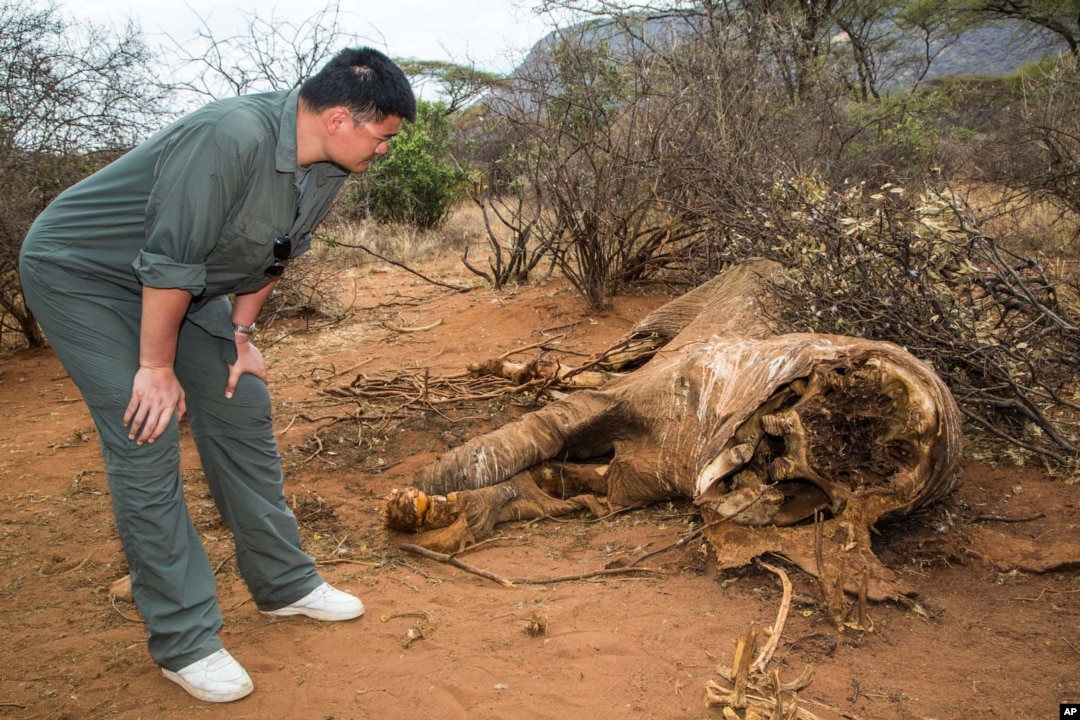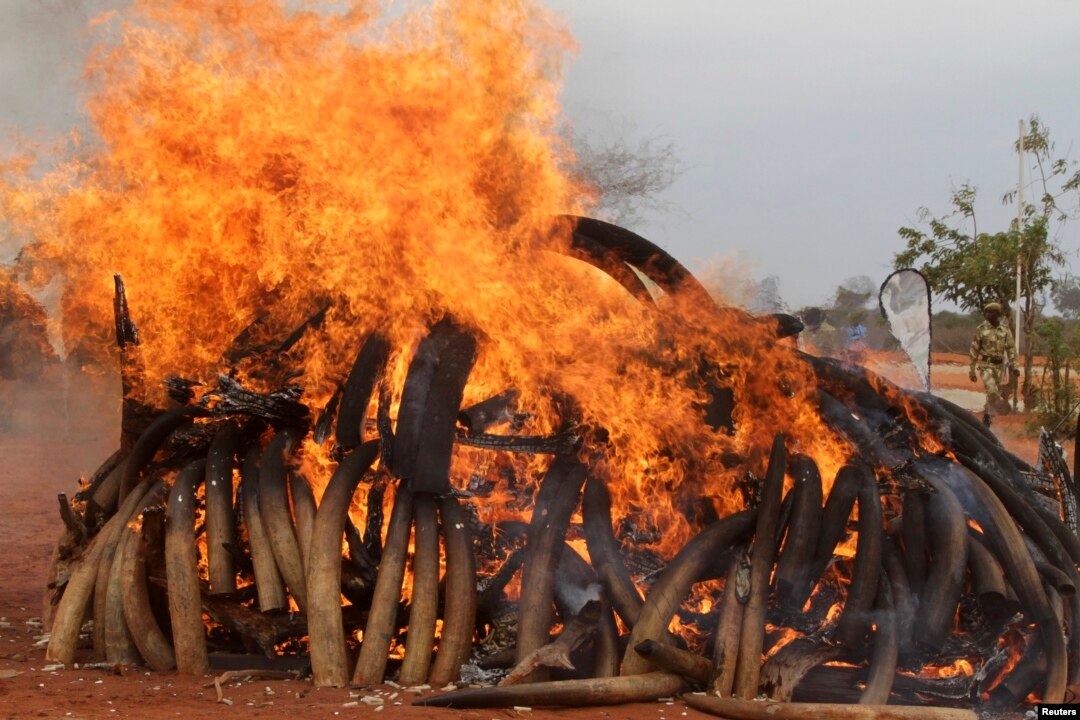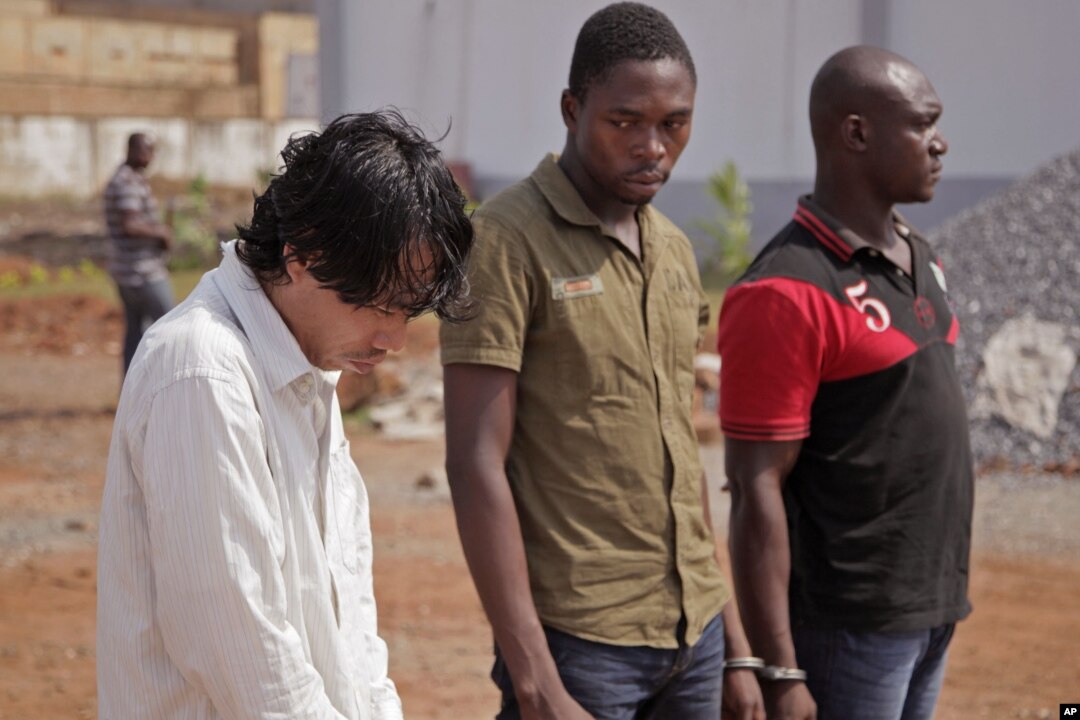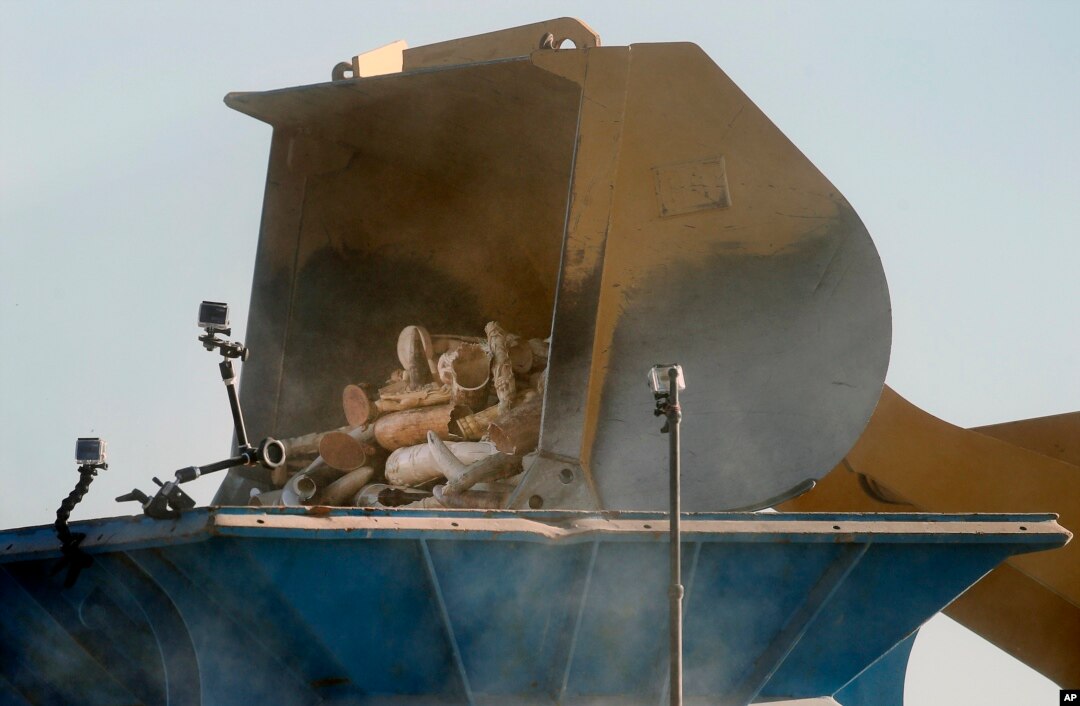Waging Global War on Africa's Crucial Environmental Conflict

CHINA Retired Houston Rockets basketball star Yao Ming toured devastated areas of Kenya's wildlife parks to tell millions of China's television viewers to stop buying ivory. He examined the carcass of an elephant in Samburu in August, 2012.

KENYA Tsavo National Park east of Nairobi burned five tons of ivory in 2011 that were seized from shipments discovered in Singapore and poached from herds in Malawi and Zambia.

TOGO A trio of smugglers - one of them Vietnamese - were displayed after authorities in Lome discovered two shipping containers marked timber and cashew nuts contained 500 elephant tusks worth $8 million bound for Vietnam's black market. DNA tests revealed the tusks were poached from at least nine other African countries.

UNITED STATES The U.S. Fish and Wildlife Service crushed six tons of ivory seized in the United States on November 14, 2013, declaring new federal government efforts to ban new and antique ivory in one of the world's largest ivory markets.
DIPLOMACY Former secretary of state Hillary Clinton is credited by some conservationists with making a long-time conservation issue a question of global strategy to fight terrorism in Africa. She even made the case before Albania's parliament (above) in November, 2012.
CHINA Customs officers guard six tons of illegal ivory about to be crushed in Dongguan, southern Guangdong province, China Monday, in January, 2014. The move was a global signal that Beijing seeks to discourage comsumers in the world's largest ivory market.
HONG KONG Crates of illegal ivory valued at $5.3 million were displayed at a Hing King press conference in August, 2013. The seisure included rhino horns and leopard skins.
UNITED KINGDOM Rangers of the Kenya's wilflife and forest services receive field training in the Nanyuki forests from Britain's 3rd Battalion parachuters in the use of hand signals while tracking poachers.

